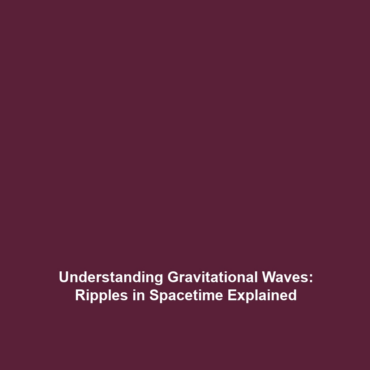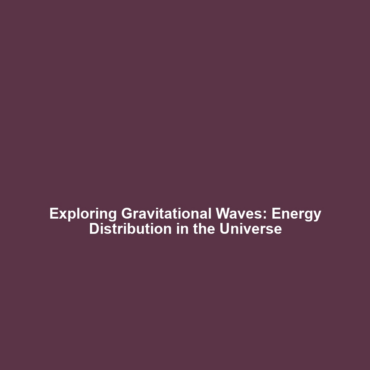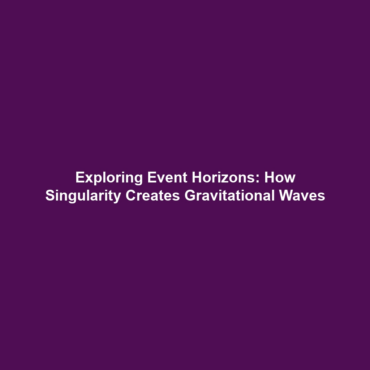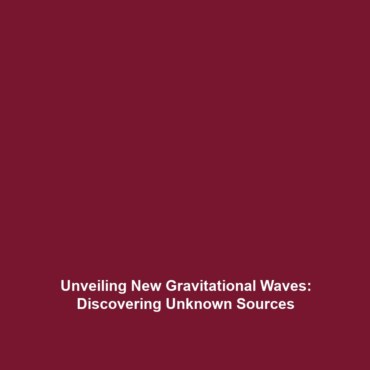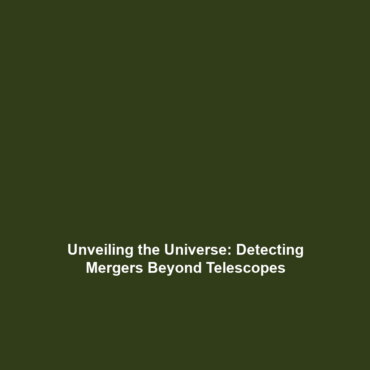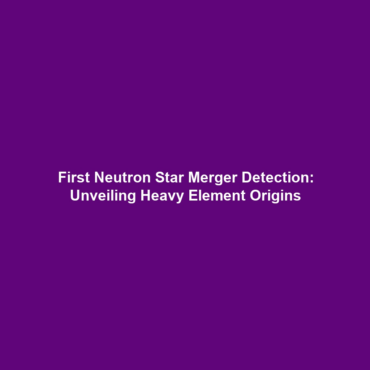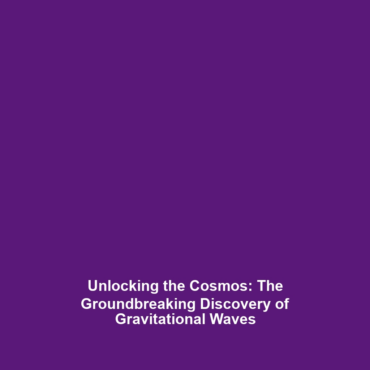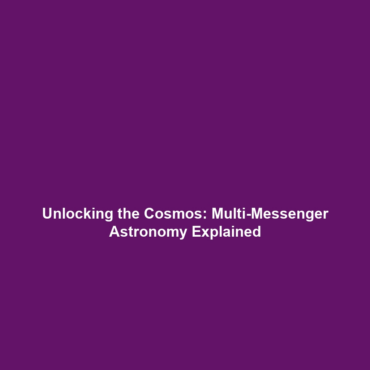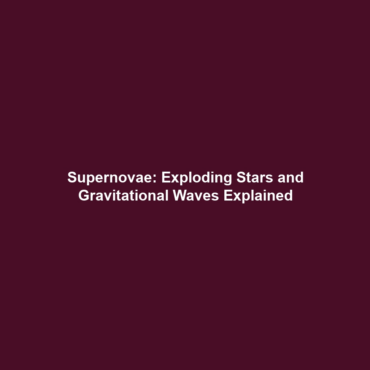Why Gravitational Waves Carry Information About Cataclysmic Cosmic Events
Introduction
Gravitational waves, ripples in spacetime caused by massive cosmic events, hold a wealth of information about the universe. Understanding why gravitational waves carry information about cataclysmic cosmic events is crucial for astronomers and physicists alike. These phenomena offer insight into the most dramatic moments in the cosmos, including black hole mergers and supernova explosions. The significance of studying gravitational waves lies in its potential to unlock mysteries surrounding the formation and evolution of the universe, making it a cornerstone of modern astrophysics.
Key Concepts
Understanding Gravitational Waves
Gravitational waves are generated when massive objects accelerate, causing disturbances in the fabric of spacetime. They were first predicted by Albert Einstein in 1916 as part of his General Theory of Relativity. The key concepts surrounding why gravitational waves carry information are:
- Wave Detection: Advanced detectors like LIGO and Virgo are designed to sense these faint signals.
- Frequency Patterns: The frequency changes of the waves can indicate the size, distance, and type of cosmic event.
- Polarization: The way the waves are polarized can provide additional information about the object that produced them.
Applications and Real-World Uses
The study of why gravitational waves carry information about cataclysmic cosmic events has practical applications that extend beyond theoretical physics. Key applications include:
- Astronomical Observation: Understanding cosmic collisions, like neutron star mergers, can inform our knowledge about neutron stars’ properties.
- Fundamental Physics: Tests of gravitational theories and insights into dark matter and dark energy.
- Interdisciplinary Research: Collaborations between astrophysics and fields like quantum mechanics and particle physics often arise from gravitational wave studies.
Current Challenges
Despite the exciting prospects of studying gravitational waves, there are several challenges and limitations:
- Detection Sensitivity: Current detectors have limitations in sensitivity, making it difficult to detect weaker signals from distant events.
- Data Analysis: The vast amount of data generated poses computational and interpretive challenges.
- Funding and Collaboration: Ensuring adequate funding and international collaboration is crucial for the advancement of this field.
Future Research and Innovations
The future of why gravitational waves carry information about cataclysmic cosmic events looks promising. Innovations include:
- Next-Generation Detectors: Projects like the Einstein Telescope and the Cosmic Explorer aim to enhance sensitivity and range.
- Multi-Messenger Astronomy: Combining gravitational wave data with electromagnetic observations provides a more holistic understanding of cosmic events.
- Artificial Intelligence: Utilizing AI for data analysis may help unravel complex signals more efficiently.
Conclusion
In summary, understanding why gravitational waves carry information about cataclysmic cosmic events is crucial for uncovering the secrets of the universe. Their study not only enriches our knowledge of astrophysics but also fosters inter-disciplinary applications and innovations. Continued research in this area promises to facilitate breakthroughs that can transform our understanding of the cosmos. For those interested in learning more, consider exploring related topics such as black hole mergers and supernova explosions.

